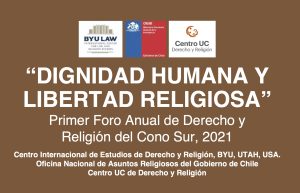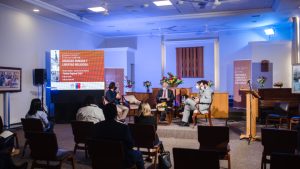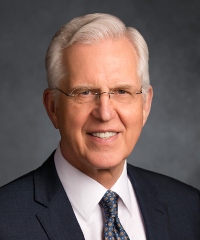The First Annual Forum on Law and Religion of the Southern Cone: Remarks from Speakers and Panelists
 The First Annual Forum on Law and Religion of the Southern Cone, “Human Dignity and Religious Freedom,” was held in Santiago, Chile, 28–29 October 2021. Of particular focus was the preservation and protection of freedom of religion or belief in light of Chile’s anticipated constitutional reforms. The forum was sponsored by BYU’s International Center for Law and Religion Studies, the Chilean government’s National Office of Religious Affairs, and the Center for Law and Religion at Pontifical Catholic University of Chile. It included participants from Argentina, Chile, Paraguay, Uruguay, and the United States. Below are links to select forum remarks, available in both Spanish and English.
The First Annual Forum on Law and Religion of the Southern Cone, “Human Dignity and Religious Freedom,” was held in Santiago, Chile, 28–29 October 2021. Of particular focus was the preservation and protection of freedom of religion or belief in light of Chile’s anticipated constitutional reforms. The forum was sponsored by BYU’s International Center for Law and Religion Studies, the Chilean government’s National Office of Religious Affairs, and the Center for Law and Religion at Pontifical Catholic University of Chile. It included participants from Argentina, Chile, Paraguay, Uruguay, and the United States. Below are links to select forum remarks, available in both Spanish and English.

El Primer Foro Anual de Derecho y Religión del Cono Sur, “Dignidad Humana y Libertad Religiosa,” tuvo lugar en Santiago, Chile, el 28 y 29 de octubre de 2021. El foco particular fue la preservación y la protección de la libertad de religión o creencia a la luz de las reformas anticipadas a la constitución de Chile. El foro fue organizado por el Centro de Estudios de Derecho y Religión de la Universidad Brigham Young, la Oficina Nacional de Asuntos Religiosos del Gobierno de Chile, y el Centro de Derecho y Religión de la Pontificia Universidad Católica de Chile. Incluyó participantes de Argentina, Chile, Paraguay, Uruguay, y los Estados Unidos. Abajo son hiperenlaces a unas presentaciones seleccionadas, en inglés y en español.


